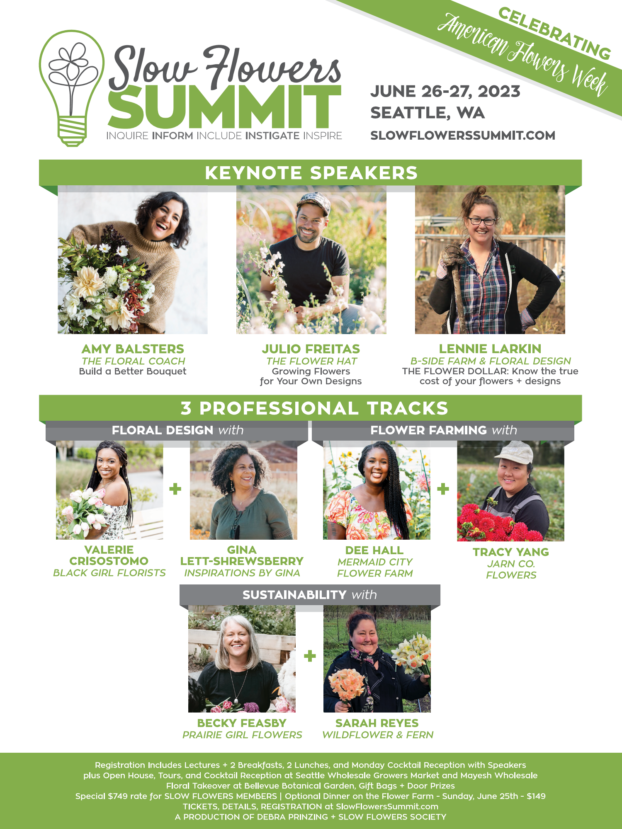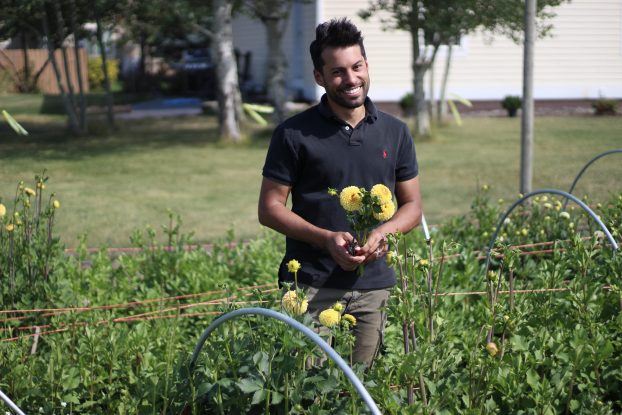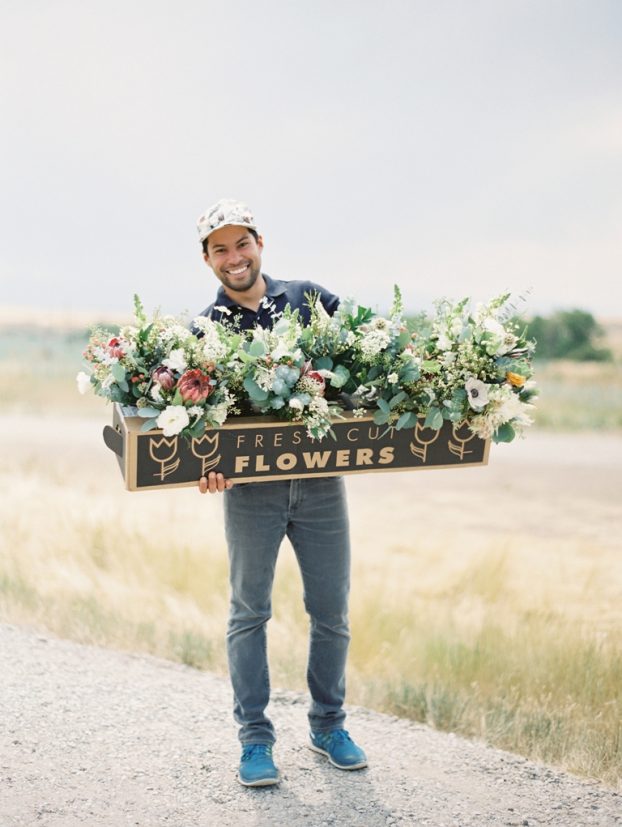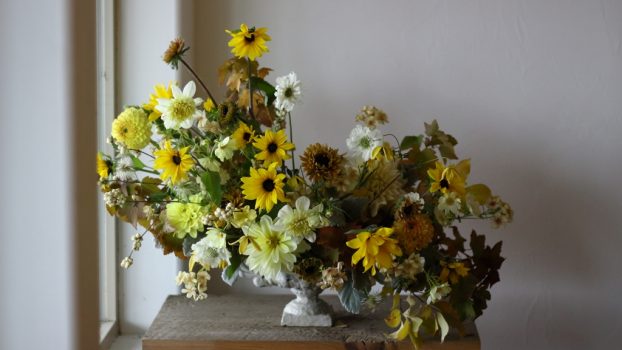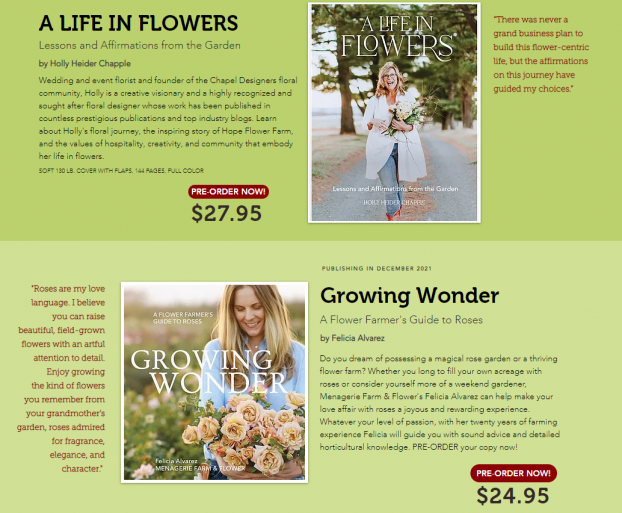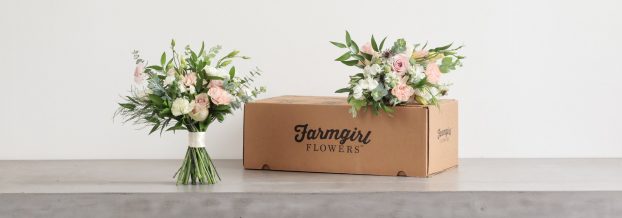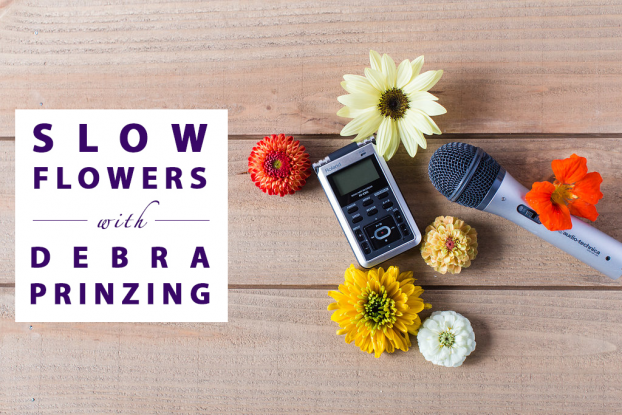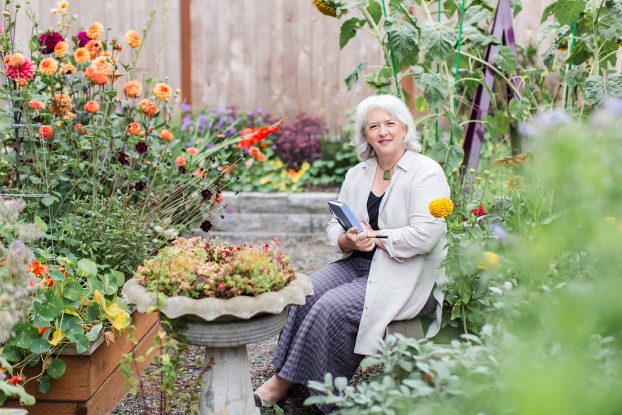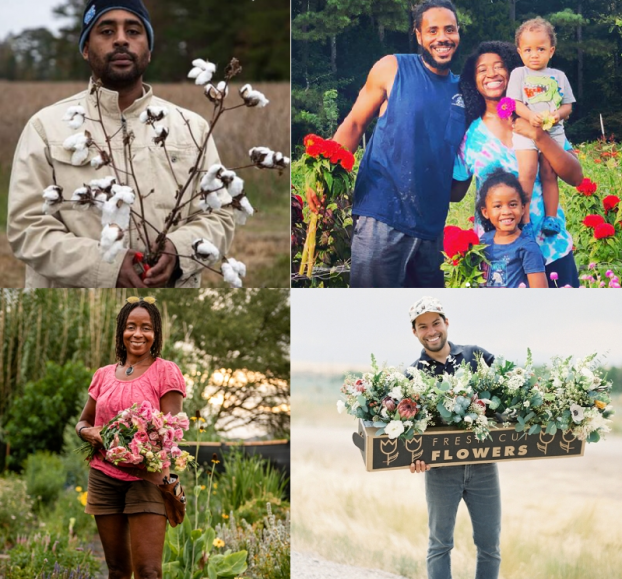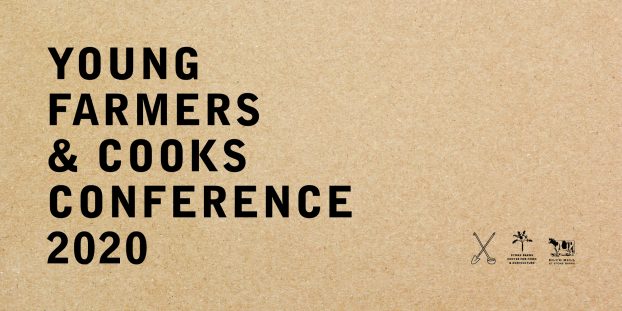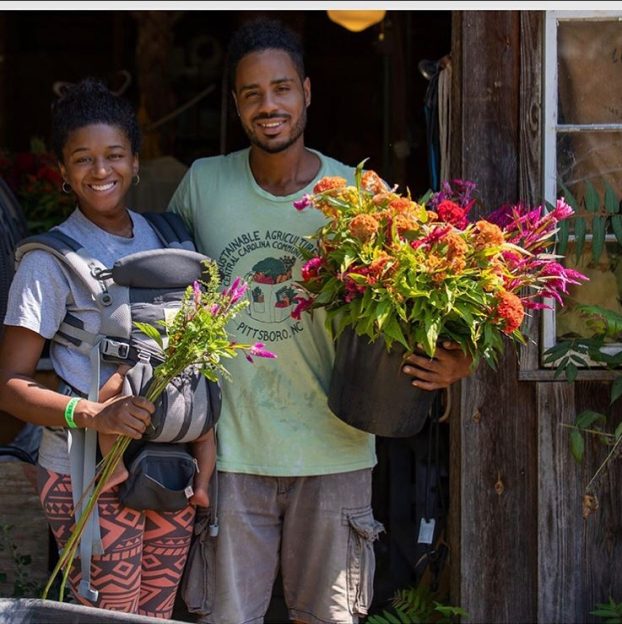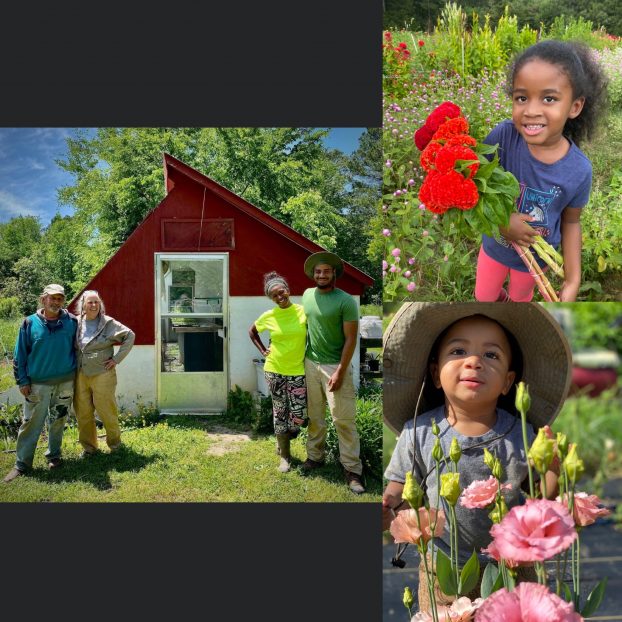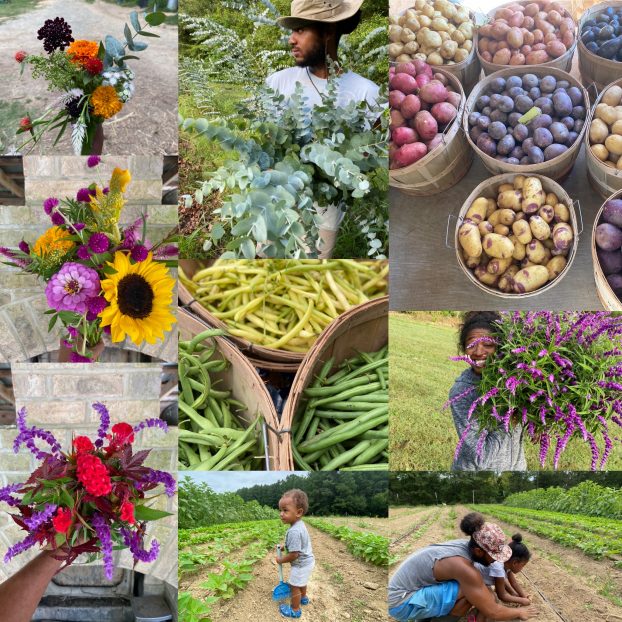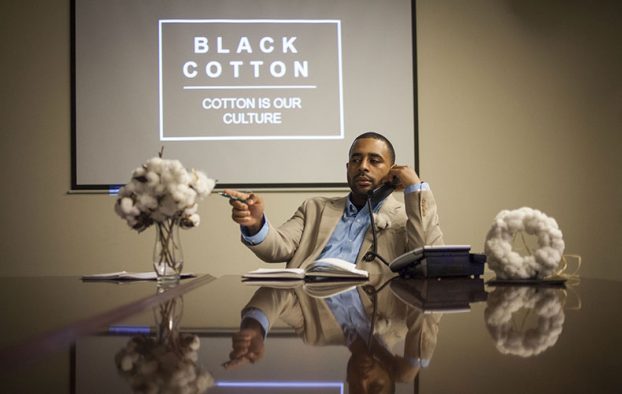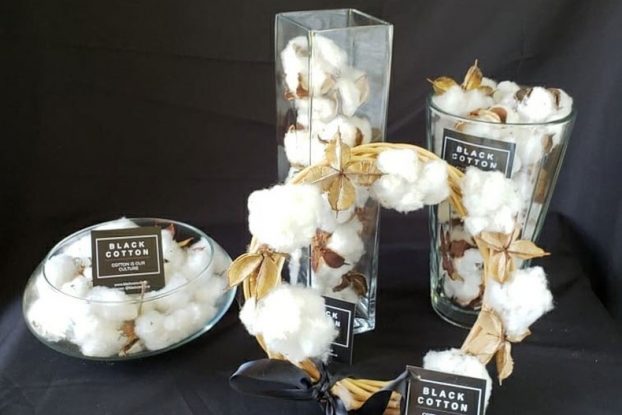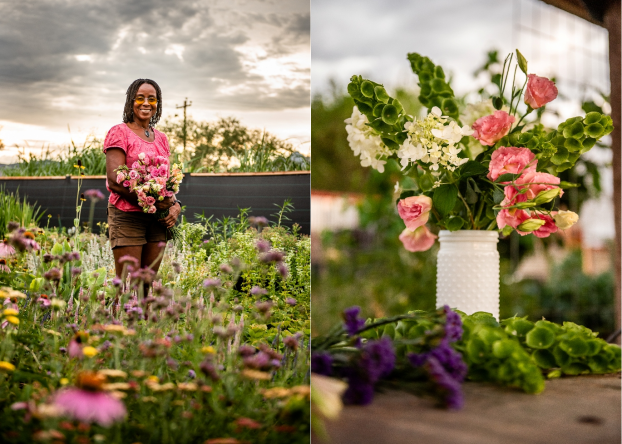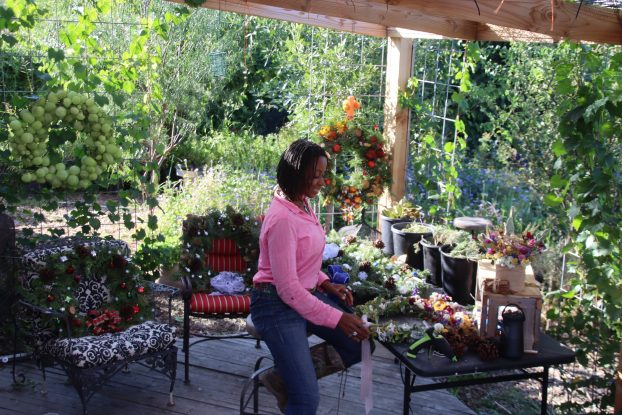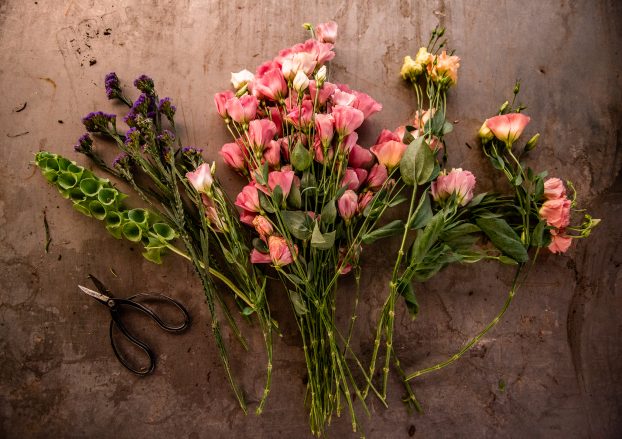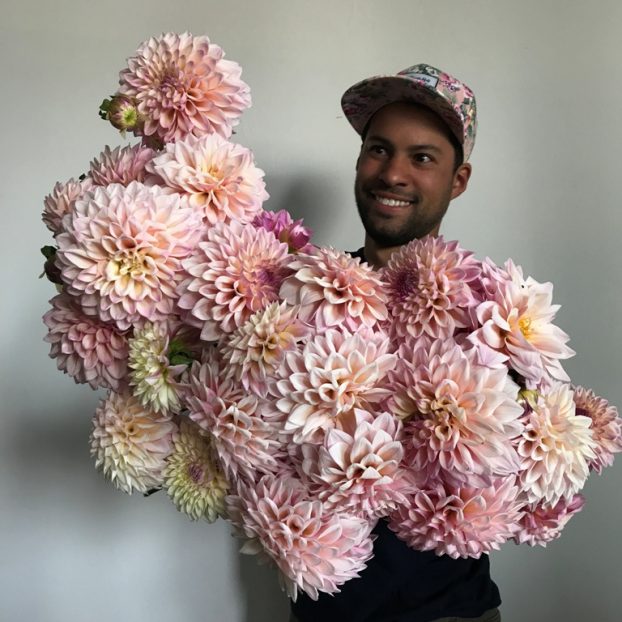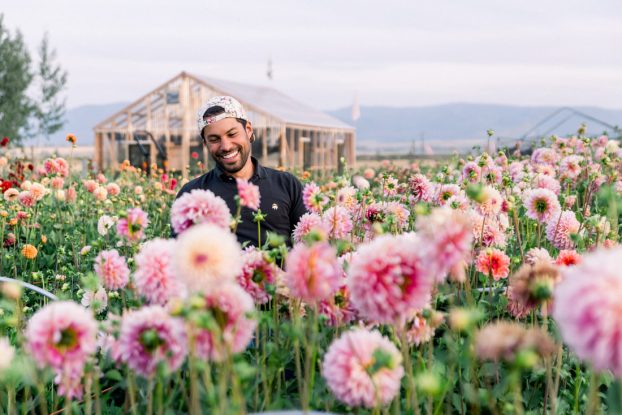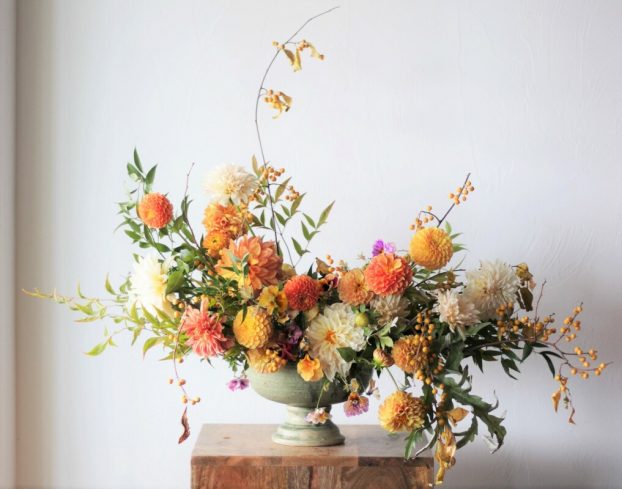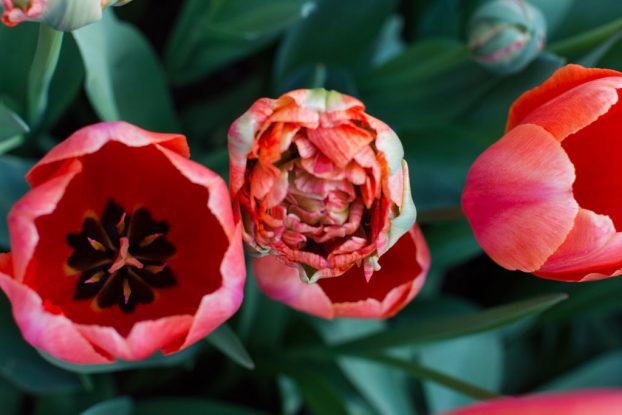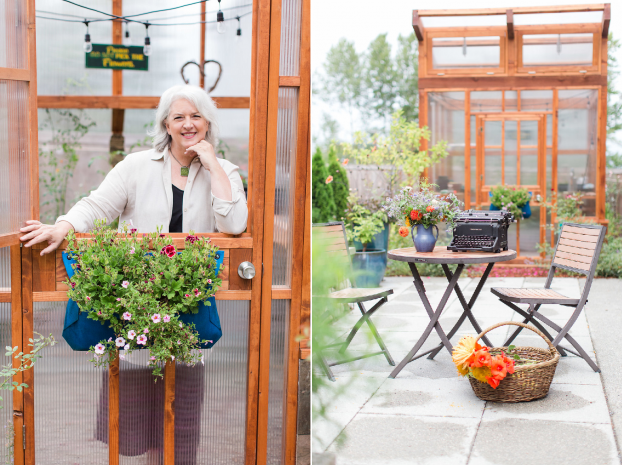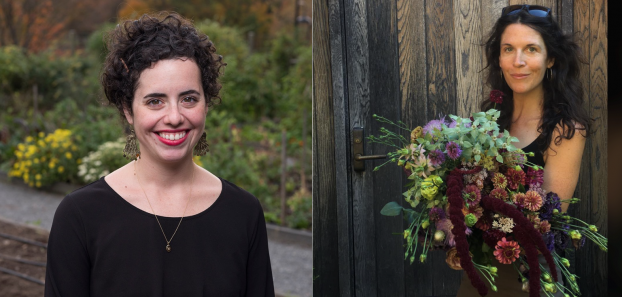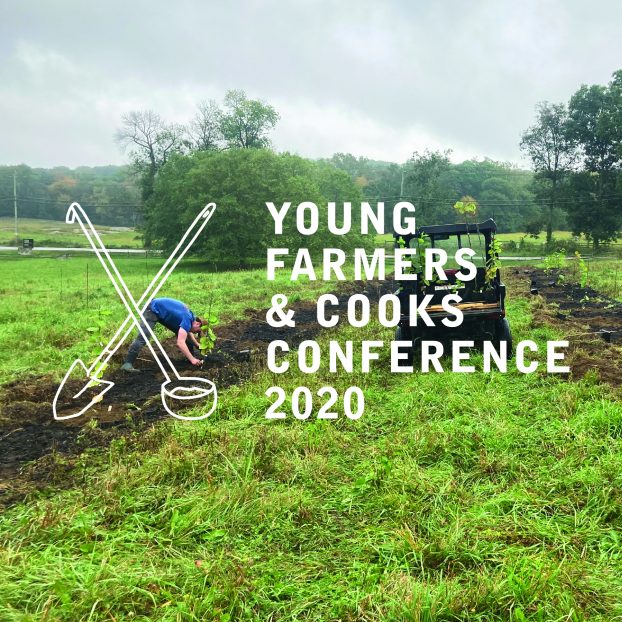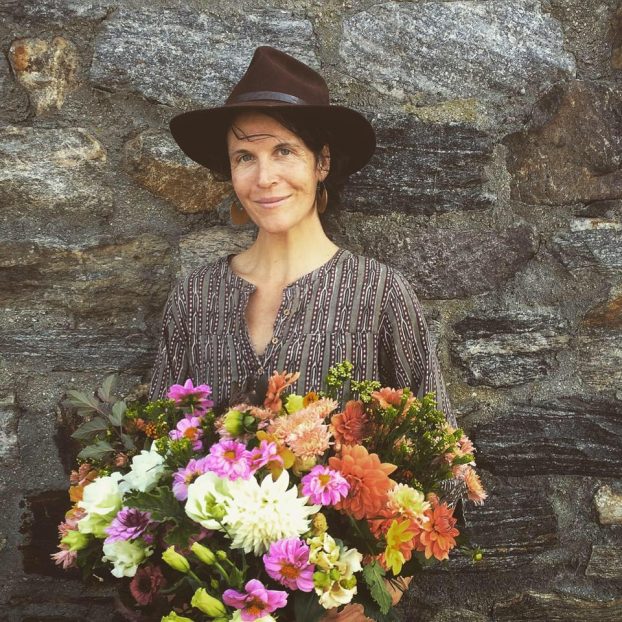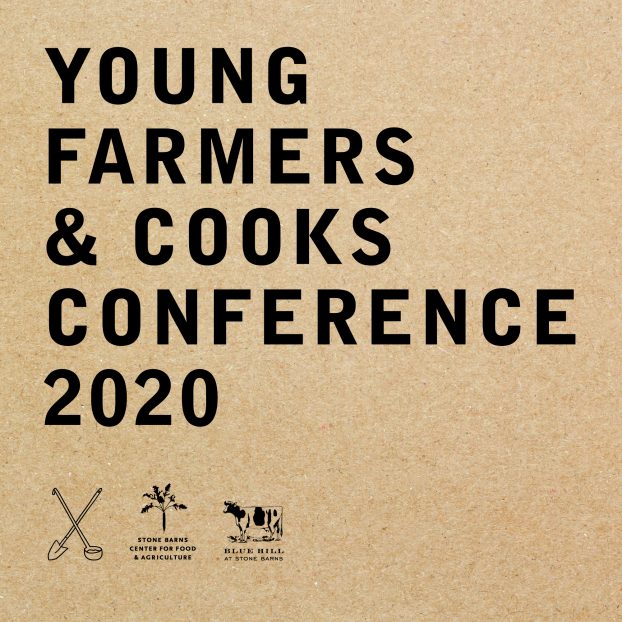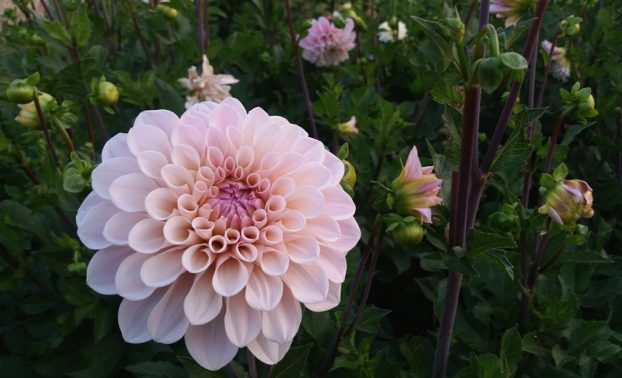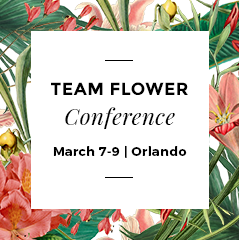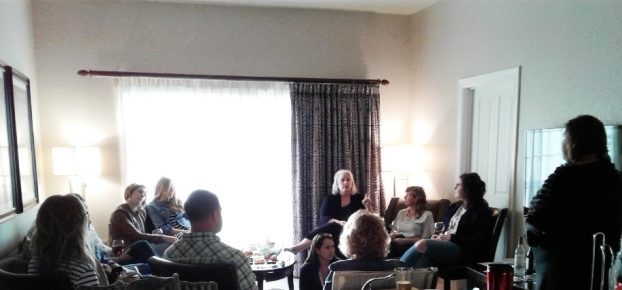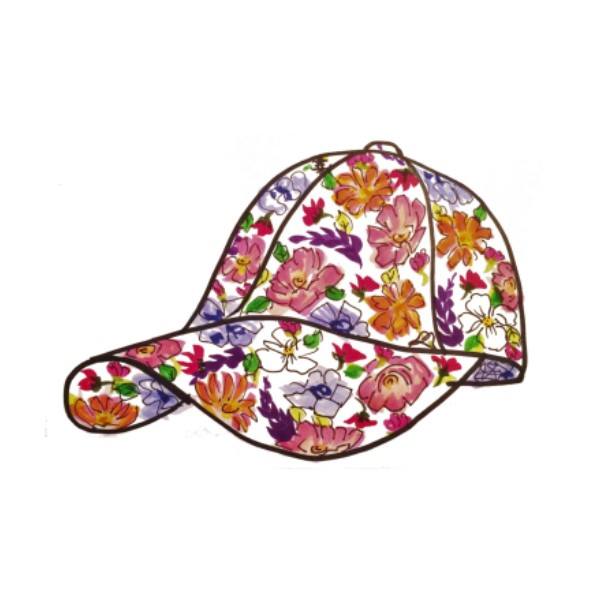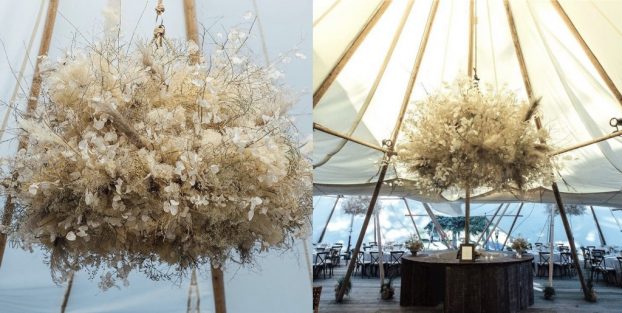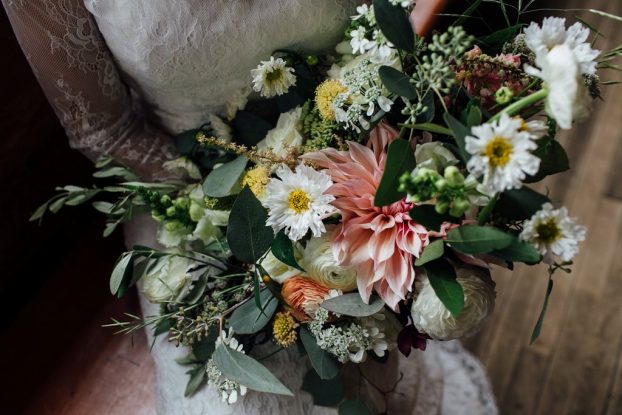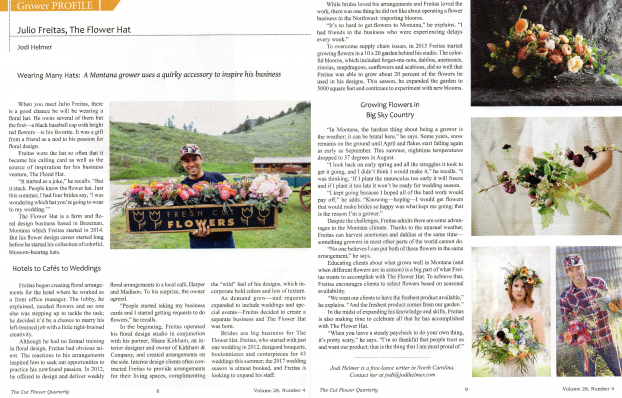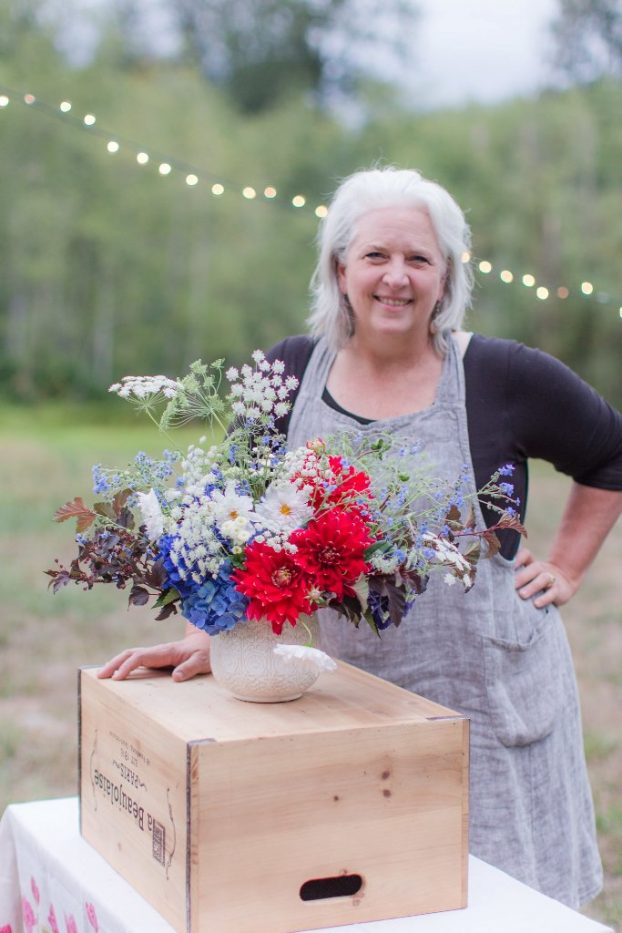Podcast: Play in new window | Download
Subscribe: Apple Podcasts | Podcast Index | RSS | More
Today, I’m happy to share my recent conversation with Julio Freitas, owner of The Flower Hat, an event floral design studio and flower farm based in Bozeman, Montana. A longtime Slow Flowers member and past guest of the Slow Flowers Podcast, we’ve been eager to bring Julio to the Slow Flowers Summit stage – ever since our first year in 2017.
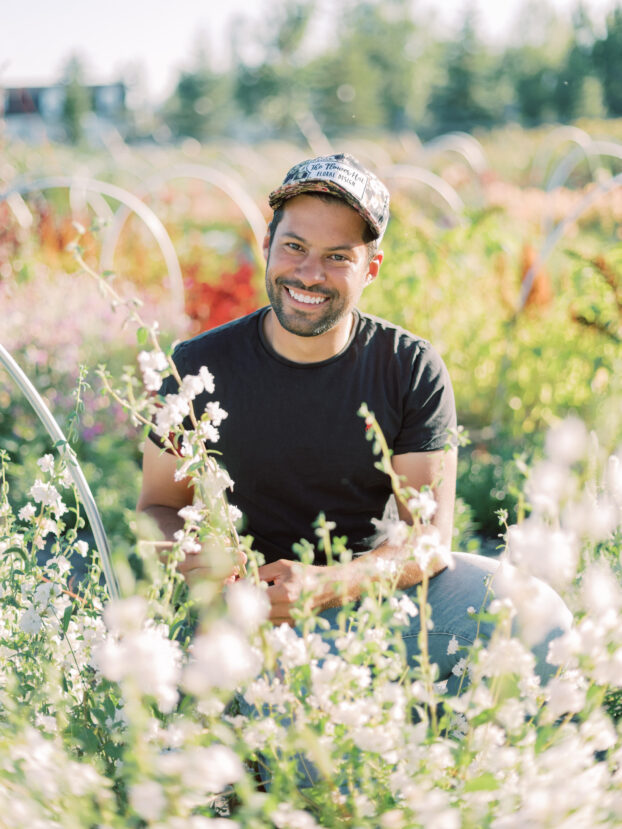
Julio’s passion for floral design grew into flower farming when he realized he could successfully grow flowers despite Montana’s challenging climate. In our conversation, we discuss how as his floral enterprise evolves and changes, he continues to develop educational resources to teach others how to succeed in business and thrive in floral design and farming. Julio grows flowers for his own designs, devotes one-half of the farm’s production area to dahlia tubers for The Flower Hat’s successful online sales program, and trials bulbs for fall sales.
At the Slow Flowers Summit, Julio will headline Day Two, presenting a one-hour mini-version of The Flower Hat’s popular workshop series, tailored for florists, growers, and farmer-florists. He will share insights on The Flower Hat’s unique business model and design a centerpiece in his unique style.
Featured in numerous national and international publications, the common thread of The Flower Hat’s weddings and events are LOCALLY GROWN FLOWERS, which Julio credits as a major distinctive for his studio’s aesthetic and brand. Despite a short season (USDA Zone 4b) and limited acreage, The Flower Hat maximizes production by carefully selecting crops that elevate arrangements — including hard-to-ship and hard-to-find varieties that bring floral designs to life.
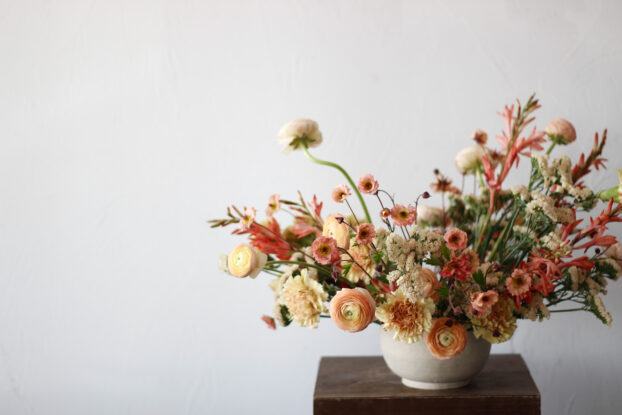
Julio can chat about business while also designing a floral arrangement — what a feat! Enjoy the design demonstration and watch Julio’s process as he creates a centerpiece using a low, footed bowl and a ball of chicken wire, along with statice, watsonia, carnations, ranunculus and no foliage. It’s a fabulous tutorial.
Thank you so much for joining me today! As always, I feel like I could chat with Julio for hours. And I wanted to mention, you heard a few other voices in this episode, including Tonneli Gruetter of Salty Acres Farm, our Slow Flowers Membership manager. She helped facilitate our June Slow Flowers Member Meet-Up and I asked her to field questions and make sure that our attendees comments were shared during the session.
Thank you to our Sponsors!
This show is brought to you by Slowflowers.com, the free, online directory to more than 850 florists, shops, and studios who design with local, seasonal and sustainable flowers and to the farms that grow those blooms. It’s the conscious choice for buying and sending flowers.
Thank you to our lead sponsor, Farmgirl Flowers. Farmgirl Flowers delivers iconic burlap-wrapped bouquets and lush, abundant arrangements to customers across the U.S., supporting U.S. flower farms by purchasing more than $10 million dollars of U.S.-grown fresh and seasonal flowers and foliage annually. Discover more at farmgirlflowers.com. And just for you attendees of the upcoming Slow Flowers Summit on June 26-27, the folks at Farmgirl Flowers have given us a lovely travel candle that you’ll find in your gift bag.
Thank you to Store It Cold, creators of the revolutionary CoolBot, a popular solution for flower farmers, studio florists and farmer-florists. Save $1000s when you build your own walk-in cooler with the CoolBot and an air conditioner. Don’t have time to build your own? They also have turnkey units available. Learn more at storeitcold.com. CoolBot has generously donated a system, valued at $375, as a doorprize at the Slow Flowers Summit, so if you’re in attendance, your name might be drawn for this incredible gift!
Thank you to Red Twig Farms. Based in Johnstown, Ohio, Red Twig Farms is a family-owned farm specializing in peonies, daffodils, tulips and branches, a popular peony-bouquet-by-mail program and their Spread the Hope Campaign where customers purchase 10 tulip stems for essential workers and others in their community. Learn more at redtwigfarms.com. Summit attendees will find a creative gift from Red Twig Farms in your gift bag – a combo water bottle, drinking cup + travel towel perfect for summer camping or any outdoor floral activity.
And a final thank you to the Seattle Wholesale Growers Market, a farmer-owned cooperative committed to providing the very best the Pacific Northwest has to offer in cut flowers, foliage and plants. The Growers Market’s mission is to foster a vibrant marketplace that sustains local flower farms and provides top-quality products and service to the local floral industry. Visit them at seattlewholesalegrowersmarket.com. The SWGMC is providing the flowers that Julio will use in his Slow Flowers Summit demonstration – and co-hosting our after hours tour and reception with Mayesh Wholesale Florist on Tuesday afternoon. We’re so grateful to them!
News of this week:
If you’re still thinking about attending the Slow Flowers Summit, we’re just two weeks out and there are only 10 spaces left before we sell out. Remember, Slow Flowers Members, you enjoy $100 off as a member benefit, so that’s great savings. One of you might go home with a coveted gift from The Flower Hat – a floral cap from Julio!
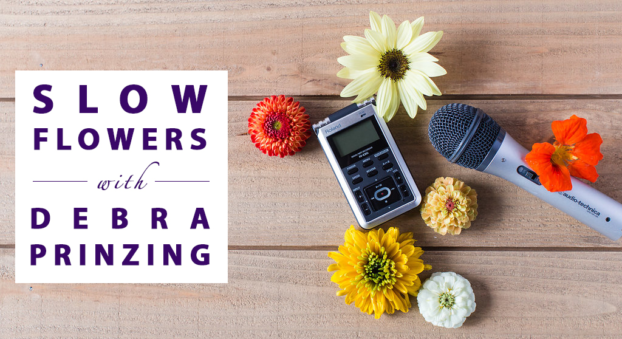
So much floral goodness happening! Thanks so much for joining me today! The Slow Flowers Podcast is a member-supported endeavor, downloaded more than one million times by listeners like you. Thank you for listening, commenting and sharing – it means so much. As our movement gains more supporters and more passionate participants who believe in the importance of our domestic cut flower industry, the momentum is contagious. I know you feel it, too. If you’re new to our weekly Show and our long-running Podcast, check out all of our resources at SlowFlowersSociety.com
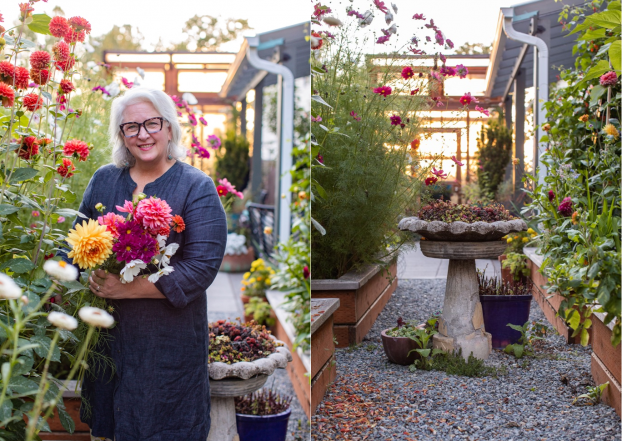
I’m Debra Prinzing, host and producer of the Slow Flowers Show & Podcast. The Slow Flowers Podcast is engineered and edited by Andrew Brenlan. The content and opinions expressed here are either mine alone or those of my guests alone, independent of any podcast sponsor or other person, company or organization. Next week, you’re invited to join me in putting more Slow Flowers on the table, one stem, one vase at a time. Thanks so much for joining us today and I’ll see you next week!
Music credits:
Drone Pine; Rodney Skopes; Turning on the Lights; Gaena
by Blue Dot Sessions
http://www.sessions.blue
Lovely
by Tryad
http://tryad.bandcamp.com/album/instrumentals
http://creativecommons.org/licenses/by-sa/3.0/
In The Field
audionautix.com










